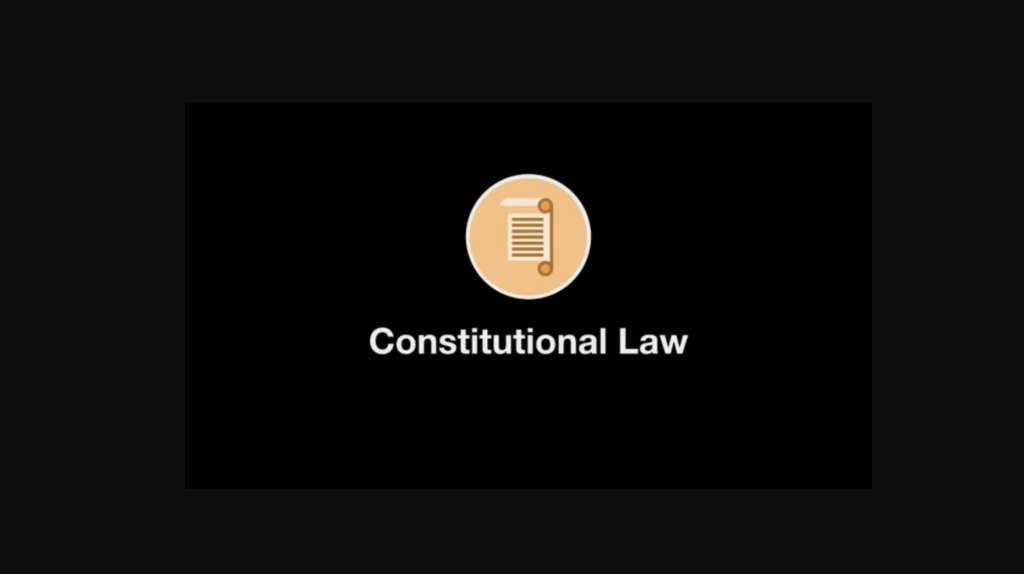Why Every Constitutional Law Course Student Needs a Writing System

Why Every Constitutional Law Course Student Needs a Writing System
Every student enrolled in a Constitutional Law Course quickly realizes one thing: mastering legal doctrine is only part of the battle—writing clearly, concisely, and analytically under pressure is the other. And without a structured writing system, even the brightest students may find themselves stumbling during law exams.
Whether you’re taking a constitutional law class online, attending in-person constitutional law classes near you, or reviewing a dense constitutional law class syllabus, the challenge remains the same—how to communicate your knowledge in a way that earns top marks on essay exams. This is where the Law Essay Exam Writing System (LEEWS) becomes indispensable.
In this in-depth guide, we explain why a writing system like LEEWS is not just helpful, but essential for anyone serious about succeeding in a constitutional law course.
The Pressure of Law School Exams Starts with Constitutional Law
Constitutional law classes are often among the most difficult for first-year and upper-level law students. With complex doctrines like federalism, separation of powers, equal protection, and due process, even understanding the material can be daunting—let alone writing about it coherently under time constraints.
When you’re handed a fact pattern involving a complicated set of governmental actions or constitutional rights, you must be able to:
- Spot relevant issues quickly
- Organize your response logically
- Articulate concise, well-supported legal arguments
- Apply black letter law to nuanced facts
- Avoid unnecessary rambling or recitation of irrelevant doctrine
And you have to do all of this under strict time limits.
A proven legal writing system provides the structure necessary to handle this pressure.
Why Typical Study Habits Aren’t Enough in a Constitutional Law Class
Many students enter their constitutional law course thinking that outlining, reading casebooks, and attending lectures will prepare them for the final exam. These habits are certainly foundational, but they’re not sufficient to write effectively in a timed essay format—especially in constitutional law where analysis often hinges on subtle policy reasoning or precedent distinctions.
Without a focused approach to writing, students often:
- Miss key issues hidden in the facts
- Fail to prioritize relevant arguments
- Struggle with exam time management
- Memorize without understanding how to apply the law
- Panic under pressure, leading to disorganized or incomplete responses
LEEWS is designed to fix all of that. It teaches law students how to “think like a lawyer” and translate that thinking into a systematic essay-writing process.
The Unique Demands of a Constitutional Law Class Online
Studying in a constitutional law class online brings flexibility—but also added challenges. Remote students may receive less real-time feedback on their legal writing. Without the structure of a physical classroom, it’s even more important to have an independent and repeatable writing system that guides preparation and performance.
LEEWS serves as your personal tutor—available 24/7. Whether you’re attending classes at night, juggling part-time work, or preparing for exams in a different time zone, LEEWS gives you a reliable method for writing A+ answers, no matter the setting.
Understanding the Constitutional Law Class Syllabus—and How It Affects Your Exam Strategy
A typical constitutional law class syllabus covers a lot of ground:
- Judicial review
- Commerce Clause
- State action
- Due process (procedural and substantive)
- Equal protection
- First Amendment (speech, religion, press)
- Government structure and power allocation
While these topics are substantive, the real question is: how do you translate them into legal analysis under exam conditions?
LEEWS bridges the gap between “knowing the law” and “writing about the law.” It teaches you how to turn that syllabus into issue checklists, frameworks for analysis, and templates for concise legal writing. You’re not just learning doctrine—you’re learning how to deploy it on demand.
How LEEWS Transforms the Way You Write About Constitutional Law
Step 1: Learn to Spot Hidden Issues
Constitutional law exams rarely come with obvious questions like, “Is this a First Amendment issue?” Instead, they present long hypotheticals that require students to find and articulate hidden constitutional concerns. LEEWS trains you to dissect fact patterns like a surgeon—identifying where government overreach may be involved, what rights may have been violated, and which standards of review might apply.
Step 2: Use a Proven Analytical Formula
Once you’ve identified the issues, you need to analyze them properly. LEEWS provides a simple but powerful formula:
Premise → Rule → Application → Counterargument → Conclusion.
This structure forces clarity, encourages depth, and ensures no steps are skipped. Your answers are streamlined and persuasive.
Step 3: Master Time Management
Time is your enemy during a constitutional law course exam. LEEWS teaches you to allocate your minutes wisely—prioritizing high-value issues and avoiding “data dumps.” You’ll learn how to move quickly and decisively through your exam response, impressing professors with your command of both content and form.
How a Writing System Helps with Constitutional Law Classes Near You
Whether you’re enrolled in a top-tier law school or a local university offering constitutional law classes near you, the pressure to excel remains intense. You’re competing against classmates who may have test-taking strategies, legal backgrounds, or simply better preparation.
LEEWS levels the playing field. It empowers every student with the tools to:
- Read like a lawyer
- Analyze like a lawyer
- Write like a lawyer
It doesn’t matter if you’re taking your class in New York or Nebraska—the challenges are the same, and so is the solution.
Why Every 1L Should Use LEEWS in Their Constitutional Law Course
Many students encounter constitutional law in their first year. It’s often taught by one of the most prestigious professors at the law school, and it carries significant weight in final GPA calculations. But 1Ls are usually new to legal writing—and unfortunately, legal writing is exactly what gets tested.
That’s why LEEWS is ideally suited for first-year students. Instead of learning by trial and error—or worse, failing before figuring things out—1Ls using LEEWS build writing discipline from day one.
They gain:
- Confidence in approaching exams
- A strategy to reduce test anxiety
- The ability to write under pressure
- A structured process that works across all legal subjects
And unlike one-size-fits-all bar prep courses, LEEWS is designed specifically for law school essay exams, making it uniquely effective for classes like constitutional law.
Beyond Memorization: LEEWS Trains You to Apply, Not Just Recall
Memorizing the structure of the Constitution, the Bill of Rights, or key Supreme Court decisions is necessary—but not sufficient. A top score requires that you apply legal principles to new and often ambiguous scenarios.
For example:
- How would the Court evaluate a state’s regulation of social media under the First Amendment?
- When does a facially neutral law become a violation of equal protection?
- What test applies if a religious school sues the government for exclusion from a public funding program?
LEEWS prepares you to tackle these tough questions—not with guesswork, but with a battle-tested writing approach.
The LEEWS Advantage Over Other Constitutional Law Course Tools
You may be using commercial outlines, flashcards, case briefs, or even watching videos from a constitutional law course online. While these tools can help you understand doctrine, they don’t teach you how to write—especially under time pressure.
Only LEEWS does that.
Here’s how we differ:
| Tool | Focus | Writing Prep | Exam Strategy |
| Outlines | Doctrinal review | ❌ | ❌ |
| Flashcards | Memorization | ❌ | ❌ |
| Class lectures | Legal theory | ❌ | ❌ |
| LEEWS | Writing system | ✅ | ✅ |
Real-World Results: What Students Say About LEEWS in Their Constitutional Law Exams
Thousands of students have used LEEWS to conquer their constitutional law classes and earn top grades. Here’s what some of them say:
“I was totally overwhelmed by the complexity of my Con Law exam, but LEEWS helped me break everything down. I knew how to find the issues and organize my arguments. I ended up getting the top grade in the class.” — Emily P., University of Michigan Law School
“LEEWS turned my writing from vague and scattered into clear, direct legal argument. My professor said my exam read like a model answer.” — James K., Georgetown Law
“LEEWS didn’t just help in Con Law. Once I had the system, it worked in Crim, Torts, and Contracts too.” — Ana L., UCLA School of Law
Takeaways: Why You Need a Writing System in Your Constitutional Law Course
Still wondering whether a writing system like LEEWS is worth it for your constitutional law course?
Here’s the reality:
– Constitutional law is one of the most challenging subjects in law school.
– Exams test writing skill more than memorization.
– Most students don’t have a repeatable process for issue spotting and legal analysis.
– Professors grade based on clarity, organization, and argument—not effort.
– A writing system like LEEWS changes how you prepare, think, and perform.
If you’re committed to succeeding—not just passing—then a writing system isn’t optional. It’s essential.
Ready to Excel in Constitutional Law? Start with LEEWS Today.
Don’t leave your exam performance to chance. Equip yourself with the only system proven to transform how law students write, think, and succeed.
LEEWS is more than a supplement—it’s your foundation for law school excellence.
Enroll today and master the skills that matter most in your constitutional law course and beyond.
👉 Visit LEEWS.com to get started.
Questions? Reach us anytime—we’re here to help you master law school.








